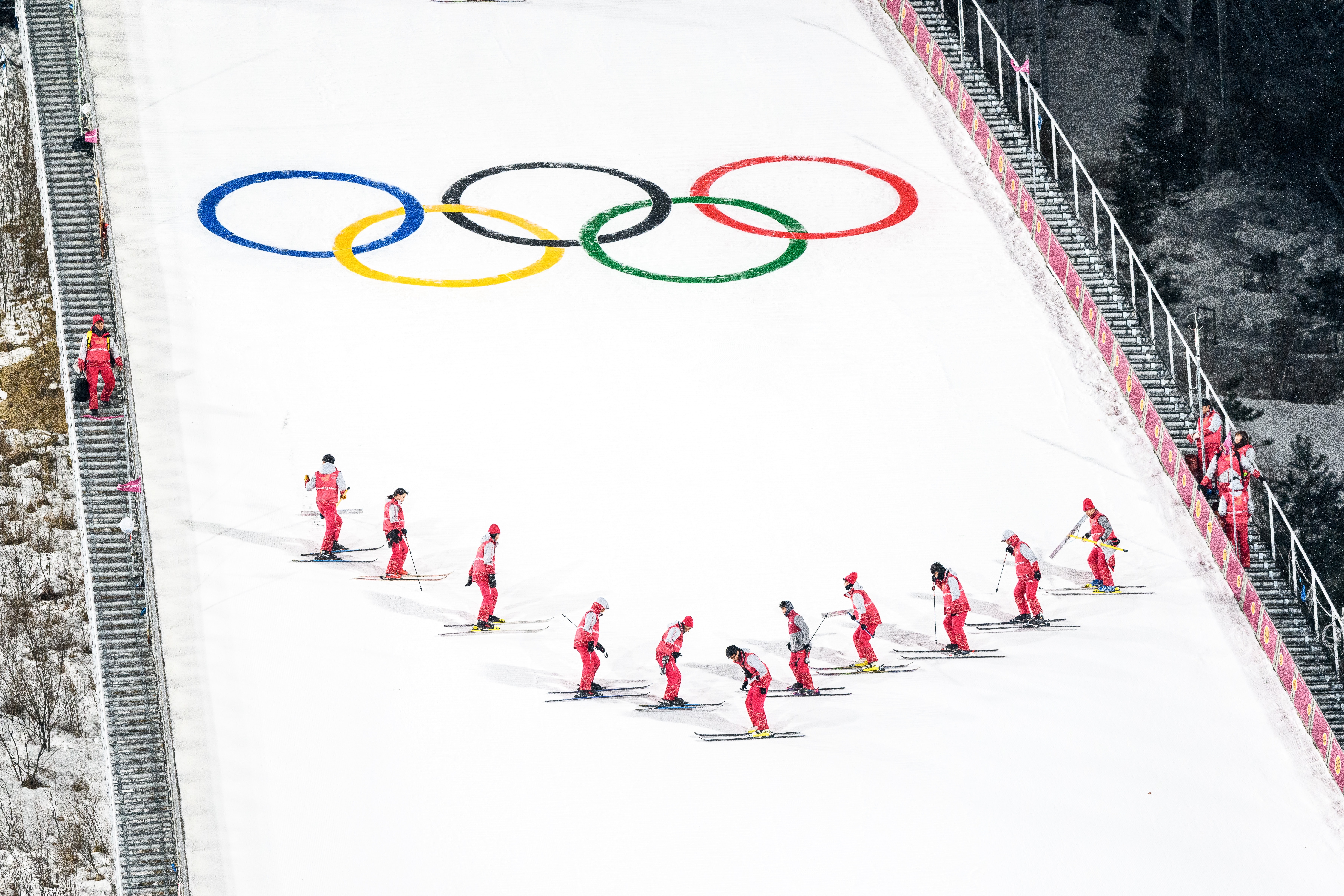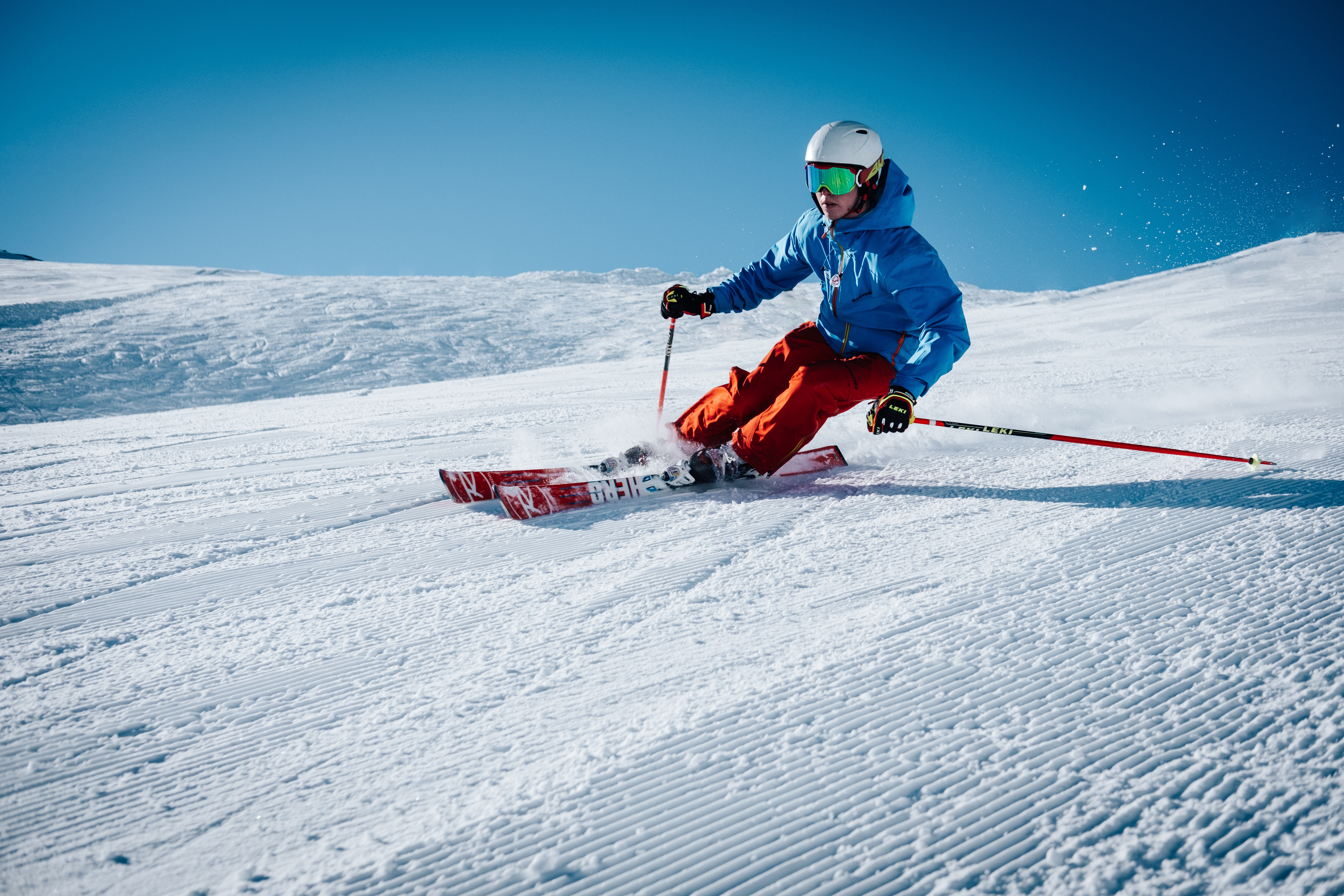
Larry Weidel: I’m here with John McBride, the coach of the U.S. Ski Team for 20 years, and legendary coach in Aspen, Colorado.
John, what did you learn from your experience when you coached Bode Miller as he became the #1 American male skier of all time?
John McBride: I would say, every component of my career was with different people. Bode was an amazing athlete, uber-talented, and a very interesting character. He and I agreed to disagree many, many times, but he was very professional in his relationship with me.
I think working at a high level with all sorts of different characters and having that opportunity was a highlight, not necessarily for one person or another, in general.
Some of the things I learned from Bode that were really interesting was that he was way more concerned about performing at his highest level versus winning.
That was a unique perspective to learn from somebody that was talented enough to win on any given day. So if he performed at his highest level that he believed and didn’t win, he was fine with that.
That’s different than many athletes.
What Do the Elite Have in Common?
LW: Are you able to see the fine line of distinction between elite and uber elite type athletes?
I’ve always thought it related to how much they cared and loved the sport because that was a key to how hard they drove themselves. What have you noticed?
JM: One thing I have noticed is that some of the best athletes in the world train with an incredibly high level of intensity and focus which translates into the way they perform and execute at the competition.
I think there’s sometimes a mindset of “It’s just training. There’s no medal waiting for me at the bottom of the hill. There’s no pressure on my shoulder so it doesn’t really matter.”
The elite athletes look at that situation very differently. I’ve seen the best athletes train at a very high level and push themselves until they figure out a way to push themselves even with nothing on the line. I think that translates to the ability to perform under pressure.
[bctt tweet=”A major component of getting to a place where you’re willing to make sacrifices in your life to be the best is that you have to really, really love what you’re doing.” username=“John_McBride”]
LW: What are some examples?
JM: I would say that’s difficult to actually specify.
It’s really more just about the attention to detail, not only with equipment, but with inspection, mental preparation, warmup, nutrition, and how athletes sleep. They’re looking at this as “this is a warmup” or “this is preparation for when I’m competing.”
There’s a difference of sort in the mental approach versus “Hey man, I’m just going to train today because the race is next week. That’s really when I’m going to put all the effort in, and I’m going to try harder on race day.”
That mentality is not what you see at the highest level.
Dealing with Doubt
LW: Have you ever questioned yourself or wondered if you wanted to keep doing this?
JM: I have. And that was mostly a hundred percent due to the environment that I was in. And that was really the only time I questioned what I was choosing to do as a career at the time.
You don’t choose the athletes you work with so you’re going to get some characters that you enjoy being around and some that you might not. Hopefully, you have a respectful relationship.
Especially when you’re on the road for nine months of the year, you have to figure out how you can be with a group of people that you support and they support you.
There were a couple of people that I was working with who never wanted to share in the responsibility, load, or anything.
I focused my energy on the athletes, but it just was not enjoyable.
Once I got out of that, I recognized how important the environment of your team is and how great it can be. I was lucky enough to be part of many teams that were great.

LW: Tell us about when you’ve gone as far as you can go for whatever reason.
The key seems to be when you change direction, change careers, or change positions that you hit it with the same intensity and positive approach that has worked for you before.
Did you find this to be true?
JM: I’ve made many changes in my life and shifted directions a few times.
I’ve left and gone back to the national team.
Most of mine has been based on family and figuring out how to spend time with my kids. I have two girls in high school and a little guy in sixth grade so I want to see them while I can.
I’ve put a lot of time and energy into the sport of skiing. I don’t miss the travel, but I’ll miss the relationship with the athletes and staff.
[bctt tweet=” Understanding your environment and what you’re up against is important, no matter what you’re doing. You need to formulate a goal and a plan that you can get really excited about and believe will work.” username=“John_McBride”]
LW: I can tell now it’s fun for you to be around the kids and a real thrill to be able to do things with them.
When you’re talking about your career side where does your mind go?
Do you feel like you’ve been there, done that after 20 years on the road?
Is there anything that fires you up or really intrigues you?
JM: I still love the sport skiing. I love being back at the essence ski club and helping kids.
I have a vision that I think I can probably help coaches be better coaches. I’ve got a lot of what I love to do right in front of me even if it’s not just skiing so I feel very lucky that I can choose to do that.
There are lots of things that excite me still so it’s really just figuring out how to enjoy my own passions aside from skiing.
LW: What would you tell people who think the only way to have an exciting life is to be famous, be a celebrity, or make zillions of dollars?
You’ve been there, you’ve done that. You’ve helped people achieve those great things.
There are a lot of people out there that need to know you can live an insanely rewarding, exciting, meaningful, valuable life without winning a super bowl or winning a gold medal.

JM: I would say one of the things about being a high-level athlete is as soon as you stop doing it you’re pretty much forgotten right away which is okay.
It’s just the way it is unless you are Michael Jordan or somebody of stature. But most of the time, a year after they quit, high-level athletes are a little bit of a forgotten name.
I think that is actually tough on athletes.
There are a lot of athletes that have very programmed lives with a lot of people making decisions, helping them navigate their world. When that stops all of a sudden, they’re a little bit lost.
They’re caught in this place where they’re having to go figure out what they’re going to do.
They have to figure out what else they might like in life other than the sport that they’ve put so much time, energy, and blood into.
The Most Rewarding Part
Figuring out ways to give back is a very rewarding piece of the puzzle for me. I gravitate towards giving back to kids.
Fulfillment is different for many people. For some living a fulfilled life is making a lot of money, finding time to have a quiet walk, or getting in nature. It might just be figuring out the balance between their family and their work. That’s an important thing for anybody to figure out.
What is fulfillment to you and what makes you happy? I feel like most of the time if you can figure that out, you’ll probably have a smile on your face.
LW: It’s great to count you as a new friend and it’s great to see you pass on the same values that were passed to you.
JM: It’s a great opportunity to figure out those little activities that you always want to do, but never have the time for.
I would encourage everyone to go find that little activity that they always intended on doing at home and now they can.
Click here to listen to the Million Dollar Mastermind Podcast episode 37 with U.S. Ski Team Coach John McBride
Click here to listen to the Million Dollar Mastermind Podcast episode 38 with U.S. Ski Team Coach John McBride


